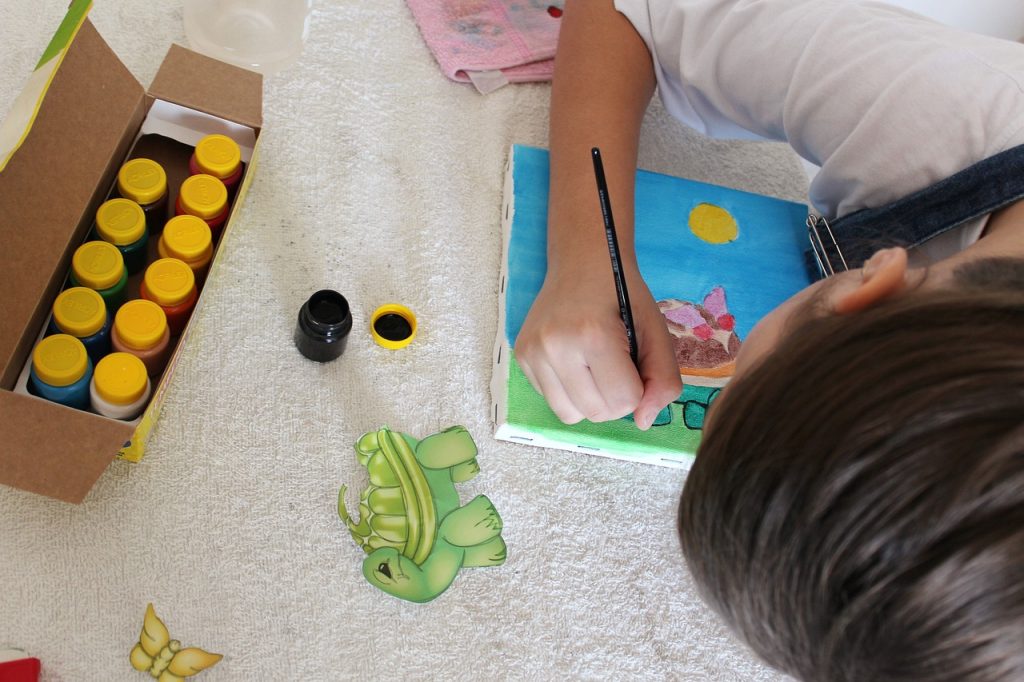
why-practical-knowledge-and-emotional-intelligence-should-be-given-to-children-at-an-early-age
The importance of cultivating practical knowledge and emotional intelligence in early childhood education
In today’s fast-paced and complex world, the traditional focus on academic achievement alone may not be sufficient to prepare children for a successful and meaningful life. Recognizing this, educators around the world are increasingly emphasizing the need to instill practical knowledge and emotional intelligence in children at an early age.
The significance of practical knowledge in early childhood education
Practical knowledge, also known as life skills or real-world skills, refers to the ability to navigate daily life and handle practical tasks effectively. It includes skills such as problem-solving, critical thinking, financial literacy, and negotiation, among others. Practical knowledge encompasses the skills and competencies needed to navigate real-life situations effectively. By introducing practical knowledge at an early age, children are empowered to make informed decisions, solve problems, and adapt to changing circumstances. Practical learning enables students to develop essential life skills in areas such as financial literacy, critical thinking, time management, and communication. These skills will provide a solid foundation for children to actively participate in society and succeed in their personal and professional lives.
The importance of practical knowledge becomes evident when we consider the challenges children may face as they transition into adulthood. In a rapidly changing world, having the ability to adapt, problem-solve, and think critically is essential. By equipping children with practical knowledge from an early age, we are preparing them to face real-life situations with confidence and competence.
Furthermore, practical knowledge helps children develop a sense of independence and self-reliance. When children are able to handle everyday tasks, such as managing their own money or making informed decisions, they gain a sense of empowerment, building their self-esteem and self-confidence. These skills lay the foundation for their future success in various aspects of life.
Emotional intelligence, on the other hand, is the ability to understand, manage, and express one’s own emotions, as well as empathise and communicate effectively with others.
Emotional Intelligence: The key to well-rounded development
Emotional intelligence is equally crucial in a child’s development. It comprises self-awareness, self-regulation, social skills and empathy. Emotional intelligence embodies the ability to recognise, understand, and effectively manage emotions, both within oneself and in others. The cultivation of emotional intelligence in early childhood education is crucial as it equips children with social skills, empathy, resilience, and self-awareness. Such emphasis on emotional intelligence facilitates a nurturing and supportive atmosphere where children learn to navigate relationships, resolve conflicts peacefully, and display empathy towards others, thus laying the foundation for their social and emotional development.
Research has shown that emotional intelligence plays a significant role in personal and professional success, even more so than intelligence quotient (IQ). By nurturing emotional intelligence in children, we are laying the groundwork for healthy and fulfilling relationships, both in their personal and professional lives. Practising emotional intelligence in schools will promote a positive school environment that will encourage emotional expression, respectful communication, and collaborative problem-solving.
Children who possess high emotional intelligence are better equipped to handle conflict, communicate effectively, and understand and regulate their own emotions. These skills not only lead to improved mental and emotional well-being but also enhance their social interactions, making them more empathetic and compassionate individuals.
The Finnish Education Model in early childhood education
Finland’s education system has consistently ranked among the best globally, and its focus, not solely on academic excellence, but also on practical knowledge and emotional intelligence, is a contributing factor to this success. Finnish schools prioritize holistic development by offering a broad curriculum that includes arts, music, sports, vocational training, and outdoor activities. The Finnish education system is often hailed as one of the best in the world. Its focus on practical knowledge and emotional intelligence has garnered global attention, leading many to question the benefits of instilling these qualities in children at an early age.
The Finnish education system, known for its progressive approach, has integrated the teaching of practical knowledge and emotional intelligence into its curriculum. Finnish children are taught life skills, problem-solving, and critical thinking from an early age, placing equal emphasis on academic subjects and hands-on learning. This holistic approach to education has been credited with Finland’s success in producing well-rounded individuals who excel not only academically but also emotionally and socially.
Benefits of early exposure through early childhood education
The early years of a child’s life are crucial for brain development and the formation of lifelong habits. Thus, introducing practical knowledge as well as emotional intelligence at this stage provides numerous benefits. Research indicates that early exposure to practical learning enables children to develop strong problem-solving skills, critical thinking abilities, and the ability to adapt to challenges. Similarly, nurturing emotional intelligence from an early age helps children develop healthy coping mechanisms, reduce conflict, and enhance relationships both within and outside the classroom.
In today’s dynamic world, academic excellence alone is not sufficient to prepare children for the challenges they will face. The integration of practical knowledge and emotional intelligence in early childhood education is crucial for shaping adaptable and capable individuals. Providing children with practical knowledge and emotional intelligence at an early age is crucial for their overall development. Drawing inspiration from Finland’s education system, where these life skills are an integral part of the curriculum, we can chart a path towards a more comprehensive education system that equips children with practical knowledge and emotional intelligence. Emphasising these skills from childhood lays the foundation for the holistic development of children, enabling them to become resilient, empathetic, and successful individuals who contribute positively to society. Also, these skills empower them to navigate the complexities of life, instilling in them a sense of independence, self-reliance, and confidence. Emotional intelligence, in particular, enables children to develop healthy relationships, leading to improved mental and emotional well-being. By recognising the significance of practical knowledge and emotional intelligence, we can prepare children to become well-rounded individuals capable of leading fulfilling lives and contributing meaningfully to society.



